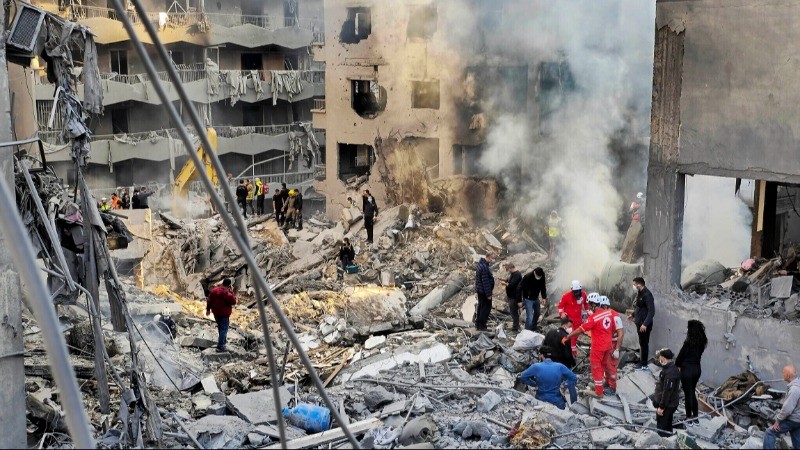
Israeli airstrikes in Lebanon have resulted in heavy casualties, with 29 people killed in a single attack in Beirut's densely populated Basta area. Additional strikes in eastern and southern regions of the country have also led to significant loss of life.
The Lebanese Ministry of Health reported that the death toll in the Basta incident had increased to 29 from an earlier count of 20. Rescue teams are still working to find survivors amid the rubble of the eight-story residential building that was hit at 4 am on November 23. Many more are injured from this attack.
In the eastern region of Shmistar, located in the Baalbek-Hermel area, Israeli airstrikes claimed the lives of at least 13 individuals, including four children, while wounding 13 others. Nearby towns were also targeted, resulting in 11 deaths and 32 injuries.
The port city of Tyre also came under fire, with five people killed and 19 injured in the bombardment.
According to the Israeli Defence Forces (IDF), 12 Hezbollah command centers were attacked in Dahieh, Beirut. These targets included facilities linked to Hezbollah’s intelligence operations, a coast-to-sea missile unit, and Unit 4400, which is reportedly involved in arms smuggling from Iran via Syria into Lebanon. The IDF claimed these centers were utilized to plan and oversee operations against Israel.
This surge in conflict coincides with a diplomatic visit by U.S. envoy Amos Hochstein, who is attempting to negotiate a ceasefire. Talks have reportedly been tense, with disputes centering around demands for Hezbollah to disarm along Lebanon's southern border and Israel’s insistence on retaining the right to strike if ceasefire terms are breached.
Meanwhile, the International Criminal Court (ICC) has issued arrest warrants for Israeli Prime Minister Benjamin Netanyahu, his former defense minister Yoav Gallant, and Hamas leader Mohammed Deif for alleged war crimes and crimes against humanity. However, the execution of these warrants depends on cooperation from ICC member states, which may limit their enforceability.
A proposed ceasefire suggests a two-month halt in hostilities, during which Israeli troops would withdraw from Lebanon, and Hezbollah would cease operations south of the Litani River. Lebanese army forces, alongside United Nations peacekeepers, would monitor the area, and an international committee would oversee the deal’s implementation.
The conflict has taken a heavy toll, with over 3,500 Lebanese deaths reported and 1.2 million displaced. Israel has also suffered losses, with 90 soldiers and 50 civilians killed. The situation in Gaza remains dire, with Palestinian deaths surpassing 44,000, with more than half being women and children, according to local reports.
Israeli Military Announces 'Elimination' of Five Hamas Militants in Northern Gaza Raid